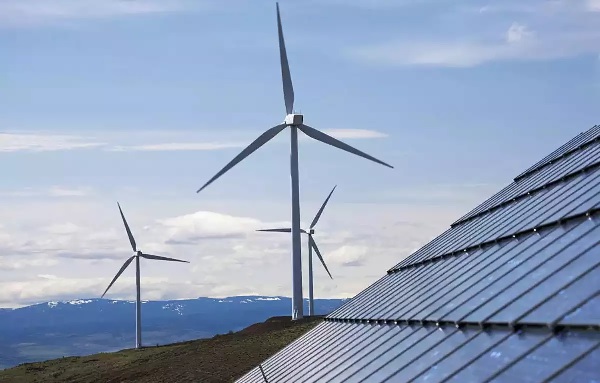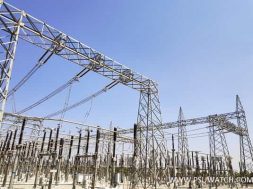
In Short : Rajasthan and Gujarat are emerging as renewable energy powerhouses due to their vast solar and wind potential, supported by favorable geographic conditions and government policies. Rajasthan’s desert and Gujarat’s coastline provide ideal locations for solar and wind projects. With strong infrastructure and energy storage plans, both states are driving India’s renewable energy goals.
In Detail : The entire worldwide energy scene is quickly moving towards more sustainable and robust systems. This evolution heavily depends upon the adoption of renewable energy sources. A report shared by the International Renewable Energy Agency (IRENA) showed that by the end of 2023, global renewable power capacity attained an impressive number of 3,870 gigawatts (GW), with solar energy making up the largest portion at 1,419 GW. India is set to take the lead in embracing renewable energy with states such as Rajasthan and Gujarat playing critical roles in this significant change, comparable to the efforts being made by several nations.
Rajasthan: A Solar Powerhouse
Leveraging its extensive barren land and abundant sunshine, Rajasthan has emerged as a leader in solar energy generation on the world stage. The state has developed an impressive 23 GW of solar energy generation capacity, which is almost half (around 51 %) of all the generation capacity in the state. This is a remarkable feat, proving Rajasthan is one of those states in India where solar power contributes more than fifty per cent of the total energy capacity installed.
The Rajasthan Renewable Energy Policy 2023 is very commendable in terms of the targets that have been set. The energy generation capacity is targeted at 990,000MW in 2029-30. The policy has set out measures to entice investors which include a 50% increment in development costs for new solar energy-related activities. Other projects like the Bhadla Solar Park which has a 2,245 MW capacity, demonstrate how Rajasthan is doing well in using solar energy.
Gujarat: A Balanced Renewable Energy Approach
Gujarat is actively pursuing both wind and solar energy, capitalising on its extensive coastline, strong winds, and abundance of sunshine. Gujarat’s renewable energy policy supports a diverse array of projects, including rooftop solar, ground-mounted solar or floating solar systems, and hybrid solar/wind projects. Gujarat has also made significant investments in wind power, with an installed capacity of about 10 GW. This balanced approach is in line with the world’s top players in the field of renewable energy. Denmark for example, has incorporated wind power into their national grid and continues to make inroads within this field.
Competing on a Global Scale
Rajasthan and Gujarat are emerging as global frontrunners in the renewable energy race, challenging even established leaders. Their ambitious initiatives have positioned them as formidable competitors, outperforming many smaller nations known for their advanced sustainable energy programs. While small countries such as Finland and Denmark have set commendable targets, these Indian states are demonstrating a greater level of ambition and innovation. This showcases that size is no barrier to green energy leadership. Rather than simply following the footsteps of global pioneers, Rajasthan and Gujarat are setting new benchmarks. Their dedication to renewable energy is as vast and impactful as the regions they serve, solidifying their position as true global contenders in the pursuit of a sustainable future.
Strategic Importance and Future Prospects
Rajasthan and Gujarat provide ideal conditions to build green energy-related projects. They offer ample space for solar power plants and wind farms. Both states are working to advance initiatives to harness renewable energy and are offering useful lessons on improving grids and innovating. The inflow of capital from the industrial, commercial and government sectors has created a favourable atmosphere for the independent producers of power as well as utility-scale enterprises. This has brought in substantial foreign and local capital. The investments not just created jobs, but added to the manufacturing sector by establishing local supply chains for renewable technology.
In terms of environmental impact from a green perspective, the introduction of sustainable energy in states like Rajasthan is crucial in reducing carbon dioxide (CO2) emissions and assisting India in its goal of achieving net-zero emissions by 2070. Rajasthan has made significant progress in removing fossil fuels, which is bolstered by policies that promote the use of wind and solar energy. This includes policies like the Rajasthan Solar Energy Policy along with the Wind Hybrid Energy Policy. Additionally, Gujarat is playing a crucial role in assisting India’s ambitious renewable energy targets for 2030. Gujarat has been recognised as being one of the top states in this field between 2023-2024, according to a report by Ember.
Even though Rajasthan as well as Gujarat have had notable success, they still need to work on issues, including difficulties in the acquisition of land and how to integrate renewable sources of energy into electricity grids. It is essential to increase transmission networks and create an energy storage system. Implementing new solutions, like intelligent grid technologies as well as modern energy storage technologies is essential to tackle these problems effectively.
It is true that Rajasthan and Gujarat have implemented bold and innovative green energy policies, demonstrating a forward-thinking approach to India’s future energy needs. By making the most of their geographical location, making it easier for investors to trade, and placing importance on innovation and building infrastructure, they’ve emerged as important centres for the production of green energy. These efforts aren’t just aiding the growth of the economy however, they are helping to fight climate change throughout the world. Rajasthan and Gujarat have ambitious plans for green energy. This proves that taking huge leaps forward is possible and essential to ensuring a sustainable future.











